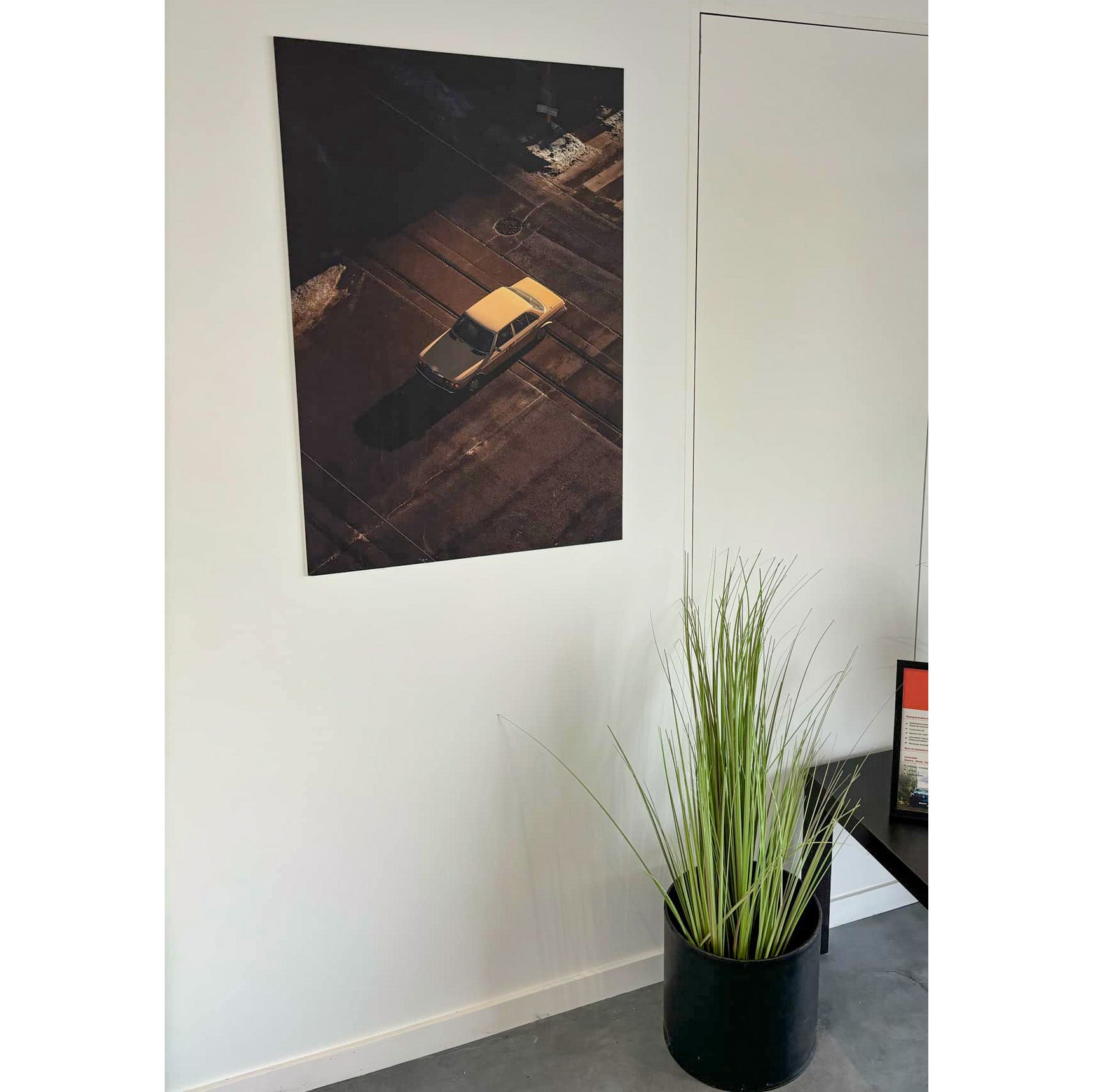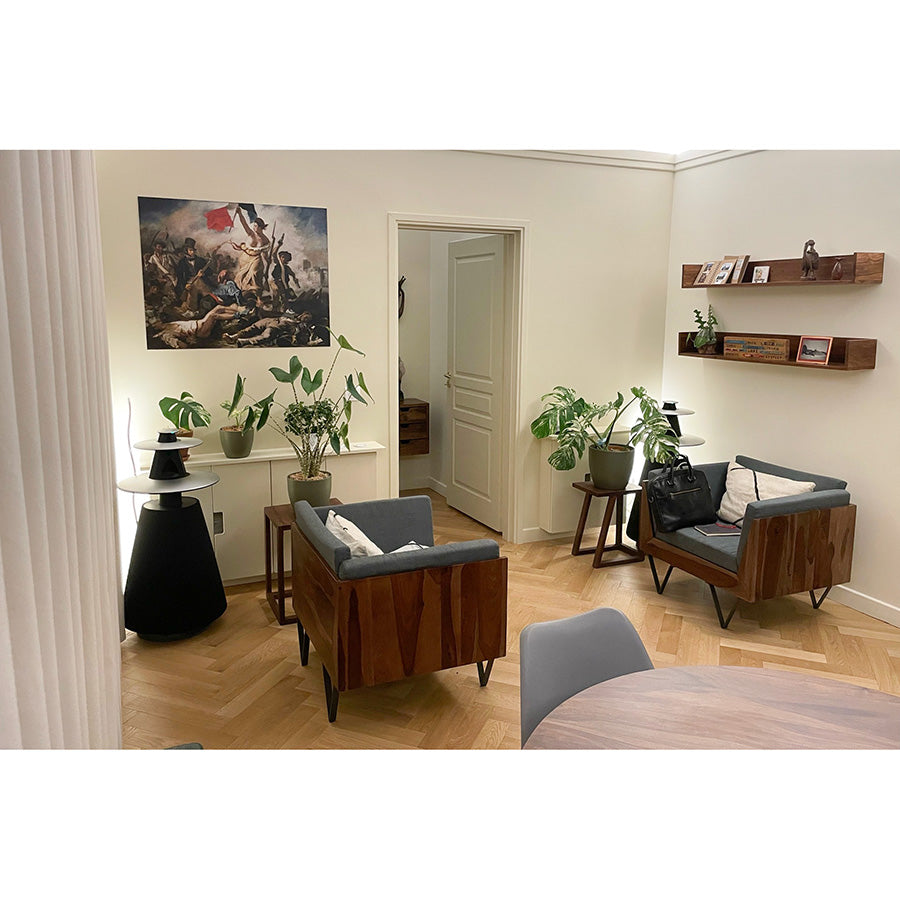Art print | Self-portrait - Jean-Baptiste Regnault


View from behind

Frame (optional)
Jean-Baptiste Regnault's Self-Portrait is an iconic artwork that immerses the viewer in the artist's intimacy. This painting, both personal and universal, reveals not only Regnault's technical mastery but also a profound reflection on identity and artistic creation. Through this portrait, the artist unveils himself, inviting us to share a moment of contemplation and emotion. Light, shadows, and meticulous details combine to create an atmosphere that is both intimate and striking, where each brushstroke seems to whisper a story.
Style and uniqueness of the work
The piece stands out for its neoclassical style, characterized by formal rigor and a quest for harmony. Regnault, faithful to the canons of his era, uses a subtly nuanced color palette, giving his art print remarkable depth. The composition is carefully balanced, with each element arranged to direct the gaze toward the artist's face. The latter, with an intense gaze, appears to capture the soul of the viewer, establishing a silent dialogue. The details of his attire, as well as the texture of his complexion, testify to meticulous observation and a desire to represent truth with great finesse. This art print is not merely a simple portrait; it is a reflection on the role of the artist and the very nature of art.
The artist and his influence
Jean-Baptiste Regnault, born in Paris in 1754, is an essential figure of French neoclassicism. Trained at the Royal Academy of Painting and Sculpture, he managed to establish himself thanks to his originality and commitment to the ideals of his time. Influenced by masters such as David, Regnault also developed a distinctive style, combining academic rigor with personal sensitivity. His work marked a generation of artists, and his approach to portraiture paved the way for new explorations in the field of artistic introspection. By depicting himself, Regnault does not merely assert his presence; he also questions the place of the artist in society, a theme that still resonates today.

Matte finish

View from behind

Frame (optional)
Jean-Baptiste Regnault's Self-Portrait is an iconic artwork that immerses the viewer in the artist's intimacy. This painting, both personal and universal, reveals not only Regnault's technical mastery but also a profound reflection on identity and artistic creation. Through this portrait, the artist unveils himself, inviting us to share a moment of contemplation and emotion. Light, shadows, and meticulous details combine to create an atmosphere that is both intimate and striking, where each brushstroke seems to whisper a story.
Style and uniqueness of the work
The piece stands out for its neoclassical style, characterized by formal rigor and a quest for harmony. Regnault, faithful to the canons of his era, uses a subtly nuanced color palette, giving his art print remarkable depth. The composition is carefully balanced, with each element arranged to direct the gaze toward the artist's face. The latter, with an intense gaze, appears to capture the soul of the viewer, establishing a silent dialogue. The details of his attire, as well as the texture of his complexion, testify to meticulous observation and a desire to represent truth with great finesse. This art print is not merely a simple portrait; it is a reflection on the role of the artist and the very nature of art.
The artist and his influence
Jean-Baptiste Regnault, born in Paris in 1754, is an essential figure of French neoclassicism. Trained at the Royal Academy of Painting and Sculpture, he managed to establish himself thanks to his originality and commitment to the ideals of his time. Influenced by masters such as David, Regnault also developed a distinctive style, combining academic rigor with personal sensitivity. His work marked a generation of artists, and his approach to portraiture paved the way for new explorations in the field of artistic introspection. By depicting himself, Regnault does not merely assert his presence; he also questions the place of the artist in society, a theme that still resonates today.









